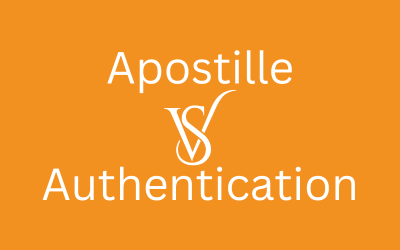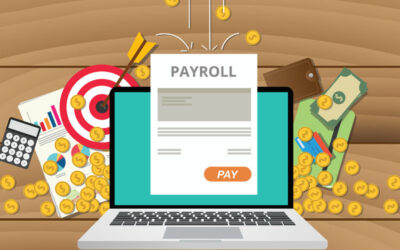No matter the type of business you operate, taxes are among the expenses you must anticipate and budget for. While not the most pleasant aspect of running a company, business taxes require an entrepreneur’s attention and follow-through because penalties exist for not reporting and paying them on time.
Here’s a look at some federal, state, and local taxes small business owners should understand and prepare for.
Federal Business Taxes
Federal Income Tax
Businesses must pay income tax on their taxable earnings. The income tax rate depends on how the business is structured. At the time of this writing, C Corporations get taxed at the corporate tax rate of 21%. Income tax for pass-through entities — such as Sole Proprietorships, Partnerships, LLCs, and S Corporations — flows through to the business owners’ personal tax returns at the applicable individual tax rates (which presently range from 10 to 37%).
Income tax is a pay-as-you-go-tax. While tax returns are filed annually, most businesses must pay income tax via four quarterly estimated tax payments.
Deadlines for estimated tax payments are as follows:
- April 15 – For taxable earnings from January 1 to March 31
- June 15 – For taxable earnings from April 1 to May 31
- September 15 – For taxable earnings from June 1 to August 31
- January 15 of the following year – For taxable earnings from September 1 to December 31
Self-Employment Tax
Self-employment tax consists of Social Security and Medicare taxes, contributing to the business owner’s benefits coverage under the Social Security and Medicare programs. Individuals who work for themselves, operating as a Sole Proprietorship, Partnership, or LLC, do not receive a paycheck from their business from which Social Security and Medicare tax are withheld. Therefore, they must pay those taxes quarterly through estimated tax payments if their net earnings from self-employment are $400 or more in the tax year.
The tax rate for Social Security is 12.4% on earnings and the Medicare tax rate is 2.9%.
Employer’s Portion of FICA Tax and Income Tax Withholding
If a small business has employees, it is responsible for withholding federal, state, and local income taxes from their workers’ pay and submitting those monies to the appropriate tax authorities.
Note that employers only withhold half of an employee’s Social Security and Medicare tax obligations from their paychecks; the business pays the other half. In other words, the employer pays 6.2% of the employee’s earnings to Social Security and 1.45% to Medicare, while comparable amounts are deducted from the worker’s pay.
Keep Learning: What is FICA?
Federal Unemployment (FUTA) Tax
FUTA (Federal Unemployment Tax Act) tax is another payroll tax businesses with employees must pay to the federal government. The FUTA program works with state unemployment programs to pay benefits to workers who have lost their jobs through no fault of their own. No portion of the 6% FUTA tax is withheld from employees’ wages.
The first $7,000 paid to each employee during the year (after deducting any FUTA-exempt payments) is subject to FUTA tax. The maximum FUTA tax per employee per year in 2023 is $420 ($7,000 x .06). Generally, employers who pay state unemployment tax on employees’ wages can receive up to a 5.4% credit on their FUTA tax. A reduction to the 5.4% credit for FUTA tax is determined every year for each state based on the state’s Federal Unemployment Trust Fund loan outstanding balance (dollar amount and length outstanding) from the federal government for the current and preceding year.
Employers must report their FUTA tax liability annually, but quarterly tax deposits may be required.
IRS due dates for depositing FUTA tax:
- April 30 – If the undeposited FUTA Tax responsibility is over $500 on March 31
- July 31 – If the undeposited FUTA Tax responsibility is over $500 on June 30
- October 31 – If the undeposited FUTA Tax responsibility is over $500 on September 30
- January 31 – If the undeposited FUTA Tax responsibility is over $500 on December 31
Keep Learning: What is FUTA?
Excise Tax
Excise tax encompasses various industry-related taxes businesses must pay if they:
- Operate certain kinds of businesses.
- Manufacture or sell certain products.
- Use various kinds of equipment, facilities, or products.
- Receive payment for certain services.
Most excise taxes are charged according to unit sales, weight, or volume.
Excise tax liability is reported on a Quarterly Federal Excise Tax Return, which is due by the last day of the month following the end of a quarter. (For example, quarterly returns for the first quarter of the year are due by April 30.) Payments on most excise taxes are due twice per month, by the 14th day after each semimonthly period. So typically, one payment is due by the 29th of the month for the semimonthly period running from day 1 to 15 of the month and the second payment is due by the 14th of the month for the semimonthly period running from day 16 to the last day of the month.
Examples of taxes reported on the excise return include:
- Environmental taxes (e.g., domestic and imported petroleum oil spill taxes, ozone-depleting chemicals tax)
- Communications and air transportation taxes (e.g., transportation of persons or property by air)
- Fuel taxes (e.g., tax on the sale of diesel fuel, aviation gasoline tax)
- Ship passenger tax
- Manufacturers taxes (e.g., coal mined, vaccines, tires)
- Indoor tanning
State Business Taxes
State Income Tax
Most states levy income tax on business income. As with federal income tax, a company’s business structure often dictates the tax rate and whether the business entity or the individual owner must pay the tax. Note that a company’s business structure for tax and registration purposes may be different for federal and state tax purposes.
Some states impose gross receipts tax instead of — or in addition to — corporate income tax.
Tax rates vary from state to state. In most states for most businesses, tax returns must be filed once per year by April 18 with quarterly tax deposits made throughout the year as income is earned.
Just as employers must withhold federal income tax and FICA from employees’ pay, they must withhold state income tax from workers’ pay and submit those monies to the state.
State Unemployment Tax
Businesses with employees must also pay SUTA (State Unemployment Tax Act) tax or SUI (State Unemployment Insurance) in most states. Generally, SUTA is paid solely by employers, with no money withheld from employees’ pay. SUTA rates vary as do the maximum employee earnings subject to the tax.
State Sales Tax
In many states, businesses must collect sales tax from the end user at the point of sale if they sell taxable items or perform taxable services. Those monies collected must then be remitted to the state. Sales tax rates, reporting requirements, and deposit due dates vary depending on the state and amount due.
State Use Tax
Most states that levy sales tax also have a use tax. If a business buys items subject to sales tax but the seller does not charge and collect sales tax on the invoice or receipt they issue, the purchasing business must remit use tax to the state. Just like sales tax, the end user of the product is subject to use tax.
Generally, a state’s use tax is the same percentage as its sales tax.
Keep Learning: Sales Tax vs. Use Tax
State Excise Tax
Businesses in certain industries or that sell certain types of products might pay state excise taxes. The types of goods subject to excise tax and tax rates vary by state. Some items that may be subject to excise tax include wine and spirits, tobacco products, gas, and mobile phone service.
Franchise Tax
Some states impose a privilege tax, called a franchise tax, on LLCs (and sometimes Corporations). Income thresholds, tax rates, and due dates vary by state.
Local Business Taxes
Local Income Tax
Some counties, cities, and municipalities impose income tax on businesses operating within their borders. Rates and deadlines vary.
Note that businesses with employees in jurisdictions that levy personal income tax must withhold it from their employee’s paychecks and remit it to the local tax authority.
Local Sales and Use Tax
Some local governments levy a local sales tax on certain goods and services. The business typically collects the tax at the point of sale and then remits it to the proper tax authority (typically the state). Use tax applies if a business purchases taxable goods or services but the seller did not charge and collect sales tax on the purchase. Sales and use tax rates vary by jurisdiction.
Other Local Business Taxes
Many local authorities have other types of taxes as well. Many are passed along to customers at the point of sale and then remitted to the appropriate local tax agency.
Below I’ve listed some examples of additional local taxes:
- Amusement tax (imposed on admission fees for events and entertainment, such as nightclubs, concerts, movies, theaters, etc.)
- Hotel occupancy tax (imposed on fees for staying in guest rooms and renting banquet facilities in hotels, motels, inns, bed & breakfasts, etc.)
- Liquor tax (imposed on sales of liquor, wine, and beer)
- Parking tax (imposed on gross receipts from parking fees paid by customers to park or store a motor vehicle in a parking facility)
Understanding Your Small Business Tax Obligations
The first step to meeting your tax responsibilities is to understand them! Speak with a trusted accountant or tax advisor to confirm which taxes apply to your business, when they’re due, what tax IDs you need for registering to collect and pay them, and other mission-critical details. You can also find information about federal business taxes on the IRS website and about state and local taxes from your state and local government websites or by calling their offices.
Register for Payroll Taxes
CorpNet can quickly register your new business for State Unemployment Insurance Tax (SUI) and State Income Tax (SIT). Our specialists manage the process of payroll tax registration so that virtually no work is required on your part. We do the work so you can worry about growing your business.





